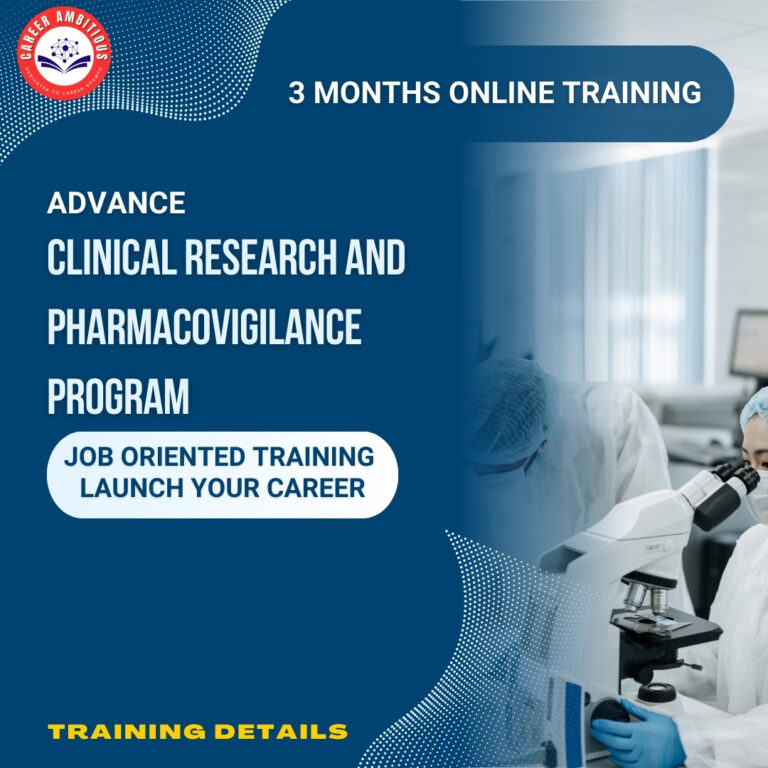A Hidden Career Gem: How to Become a Patent Research Professional After Pharma Studies

Table of Contents
What is a Patent Research Professional?
Why Patent Research is a Smart Career Move for Pharma Graduates
Common Questions from Pharma Students Exploring IP Careers
Day-to-Day Responsibilities in Patent Research Jobs
Key Skills Needed to Become a Patent Research Professional
Career Pathways: IP Roles India & Global Scope
How to Start Your Journey into Patent Profiling
Certification & Courses to Get Started in IP Biotech Jobs
Expert Q&A with Career Ambitious
Where to Find Patent Researcher Jobs in India
Conclusion: Take the Leap Toward a Career in Research
Patent Research Professional — ever heard of this title while studying pharmacy? Maybe not. Yet this is one of the most underrated, high-demand, and intellectually stimulating career options available to science graduates, especially in pharma.
If you’ve ever wondered, “What else can I do after B.Pharm or M.Pharm other than sales or lab work?”, then you’re not alone — and this blog is here to help.
Let’s decode this hidden gem of a career and explore how YOU can transition into a Patent Research Professional — with real insights, relatable experiences, and zero fluff.
What is a Patent Research Professional?
A Patent Research Professional is someone who investigates existing patents, analyzes new inventions, and works with intellectual property (IP) teams to protect, assess, and monitor innovations. This role is especially vital in pharmaceutical, biotech, and chemical industries.
But wait, is it only for law graduates? Nope. Many patent analysts and IP professionals come from science backgrounds — especially pharmacy, biotech, and chemistry.
Why Patent Research is a Smart Career Move for Pharma Graduates
Escape the Sales Trap: Tired of medical representative roles? This is your ticket out.
Utilize Scientific Knowledge: Finally put your pharmacology, formulations, and therapeutic knowledge to good use.
Intellectually Satisfying: Research-focused, reading-heavy, analytical work.
Career Stability: IP is a growing field with global relevance.
Better Work-Life Balance: Most IP roles follow corporate hours, not shift-based or field jobs.
Common Questions from Pharma Students Exploring IP Careers
Q1. I don’t have a law degree. Can I still become a Patent Research Professional?
Yes, absolutely. Your scientific background is more relevant for patent analysis.
Q2. Is this the same as a patent agent?
Not exactly. A patent agent files patents legally, while a patent researcher does background study, searches, and analysis.
Q3. Is there growth in this field?
Huge! Especially in IP roles India, pharmaceutical companies, and global biotech MNCs.
Day-to-Day Responsibilities in Patent Research Jobs
Conducting prior art searches
Analyzing patent landscapes
Preparing technical summaries of inventions
Working on freedom-to-operate analysis
Collaborating with IP lawyers and R&D teams
Key Skills Needed to Become a Patent Research Professional
Scientific background (Pharma, Biotech, Chemistry)
Analytical mindset
Research proficiency
Attention to detail
Legal terminology (basic understanding of IP law)
Patent database search skills (Google Patents, Espacenet, etc.)
Career Pathways: IP Roles India & Global Scope
Once you enter the IP field, your career can branch into:
Patent Analyst
IP Consultant
Patent Agent (after qualifying the exam)
Patent Drafting Expert
IP Manager (corporate IP cell)
IP biotech jobs are booming globally — India, Europe, USA, Japan — especially in pharma innovation hubs.
How to Start Your Journey into Patent Profiling
Learn about patent search techniques.
Build a resume around analytical work.
Explore entry-level openings titled: Patent Analyst, IP Intern, Research Associate (IP).
Take up freelance patent profiling gigs or internships.
A great starting point: Career Ambitious IP Training Program
Certification & Courses to Get Started in IP Biotech Jobs
You don’t need a 3-year degree to get into IP. Short-term job-oriented courses are enough.
Popular certifications:
Career Ambitious Patent Research Course
Indian Patent Agent Exam (optional but powerful)
WIPO Academy (basic IP law modules)
Use official resources: https://ipindia.gov.in
Expert Q&A with Career Ambitious
Q: Why should a pharma graduate consider becoming a Patent Research Professional?
Career Ambitious Expert: Because it opens doors to research, legal-tech collaboration, and innovation monitoring — all without leaving your scientific roots behind.
Q: Is this field limited to big cities or MNCs?
Career Ambitious Expert: Not anymore. Many Indian companies, law firms, and startups now actively hire patent researchers.
Q: Do I need coding or legal experience to begin?
Career Ambitious Expert: No coding needed. Basic legal awareness is taught through practical IP courses. Your science background is your biggest asset.
Q: How long does it take to switch from pharma to patent research?
Career Ambitious Expert: With the right training, many of our students transition within 2-3 months into entry-level roles.
Where to Find Patent Researcher Jobs in India
Look for job titles like:
Patent Analyst
IP Research Associate
Technology Analyst – IP
R&D-IP Executive
Check these platforms:
LinkedIn Jobs
Naukri.com
Company websites like Sun Pharma, Dr. Reddy’s, and Biocon
Take the Leap Toward a Career in Research
The journey from pharmacy to patent research might sound unconventional, but it’s smart, future-proof, and deeply fulfilling.
Being a Patent Research Professional doesn’t just mean getting a new job — it’s a whole new career perspective. You can stay connected with innovation, research, and global science trends — all without standing in a lab or running after prescriptions.
If you’re ready to pivot from pharma into something that values your brain over your boots — then this is your call.
Want help making the shift? Visit Career Ambitious and explore programs designed for professionals like you.
Your future in research starts now.


























